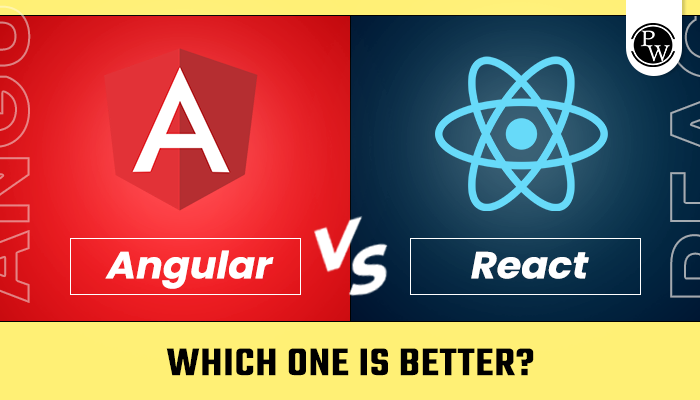Java interview questions and answers for freshers will help you prepare for the interview round. This article contains a list of top 60 questions that are commonly asked by the interviewers.
Java Interview Questions And Answers For Freshers : To acquire a job after learning Core Java or Advanced Java, you must acquire communication skills. You must also get acquainted with the commonly asked questions in the interview. In this article, we have created a list of top 60 Java interview questions and answers. By going through these questions and answers, you can prepare yourself for the interview round.
Our list of Java interview questions and answers for freshers contain some general and some technical questions. So, it will prepare you well for all sorts of questions that are usually asked in the interview.

Top 60 Java Interview Questions and Answers For Freshers, An Overview
An overview of the Java language is given in the below table:
| Top 60 Java Interview Questions and Answers For Freshers, An Overview | |
| Particulars | Details |
| Developed By | Sun Microsystems |
| Initiated In and By | James Gosling in 1995 |
| First Edition | JDK 1.0 or Java 1.0 |
| Latest Edition | JDK 21 or Java 21 |
| Types of Java | JavaFx, Java ME (Micro Edition), Java SE (Standard Edition), and Java EE (Enterprise Edition) |
| Four Pillars of Java |
|
| Features of Java |
|
Top 60 Java Interview Questions and Answers for Freshers
-
Can you define what Java is?
Java is a programming language that is object-oriented which was first created in 1991. It has undergone several transformations since then and today, it is used for the development of most websites, mobile applications, and other digital platforms.
-
Does Java have a full-form?
No, Java does not have any full-form. In fact, its name is derived from Java coffee beans.
-
Who is regarded as the founder of the Java language?
James Gosling is the founder of the Java language. It developed it for a project named Oak in 1991 and was named Oak then. In 1995, the first version of Java was released.
-
Who owns Java?
Oracle Corporation owns Java. it is estimated that over 3 million devices run on Java. It is mostly used for developing android apps and other mobile applications.
-
What are the key features of the Java language?
Platform independence, multi-threading, OOP (Object-Oriented Programming), and fast and reliable performance are some of the key features of this language.
-
Which are the main concepts in OOP?
Encapsulation, interface, abstraction, polymorphism, and inheritance are some of the main concepts in OOP (Object-Oriented Programming).
-
Can you explain data encapsulation and why is it important?
When multiple methods and properties are encapsulated in one unit, it is called data encapsulation. With encapsulation, software developers can use independent functions with their own set of variables and methods. It also helps them to hide data of those functions.
-
Can you define polymorphism?
Polymorphism refers to the process of using a single interface for different implementations. In simple words, when you perform one action in multiple ways through a single task, it is known as polymorphism.
-
Explain the types of polymorphism?
There are two types of polymorphism viz. run-time polymorphism which uses concepts like interface and inheritance and compile-time polymorphism which uses methods like overloading.
-
Can you explain what are constructors in Java?
In Java, constructors refer to the code block that is used to initiate an object. Constructors do not have any return type and have the class name. When you create an object, it will call a constructor on its own.
-
Which are the constructor types? What are they used for?
There are two types of constructors in Java viz. default constructor and parameterized constructor. Default constructors are used to create objects with default values. Parameterized constructors initiate the variables with a set value.
-
Can you define what a JDK is?
JDK stands for Java Development Kit. Compilation, documentation, and packaging of Java programs can be done with a JDK. JDK comprises development tools and JRE (Java Runtime Environment).
-
What is JRE?
JRE is Java Runtime Environment. It is a software bundle that comprises Java libraries, JVM (Java Virtual Machine), and other elements that are needed to execute Java applications.
-
What is JVM?
JVM or Java Virtual Machine allows you to run Java programs. It can also run programs that are written in other languages but compiled to the bytecode of Java. In simple words, it can help you to run Java and other programs even in environments and platforms that do not support Java.
-
Which JDK is most popular?
Java 11 and Java 8 are the most popular JDK till date.
-
Which is better: JDK 8 or 11?
JDK 11 runs programs faster than JDK 8. They are also more secure.
-
What is the best way to create a thread in Java?
The best method to create a threat is by implementing a runnable interface. In this method, we extend the thread class. This inherits all the Thread class components and methods which helps us to run and execute programs efficiently.
-
What is overriding in Java?
When the child class or subclass has a method which is the same as the parent class’s method, it is known as overriding.
-
What is a deadlock in Java?
When two or more threads get blocked forever, it is known as deadlock in Java.
-
What is JIT in Java?
JIT means Just-In-Time compiler which enhances the performance of a Java Virtual Machine. It reduces the time required for compilation by compiling components of the code which have a similar functionality together.
-
Which are the types of JIT?
Econo JIT compilers, pre-JIT compilers, and normal JIT compilers are the three types of JIT.
-
What is an array in Java?
In Java, arrays are container objects that hold a predetermined number of values of the same type. An array’s length is determined during its creation. Its length remains fixed after it has been created.
-
What is string in Java?
In Java, a string refers to an object which denotes the number of character values. Every letter in the string holds a separate value and is a part of the string object.
-
How to write a string in Java?
Simply write, String <string name> = “characters of the string”. For example, String Greet = “Hi People”.
-
Why are classes used in Java?
A class is used in Java to create objects and to define their methods and data types simultaneously. In simple words, classes are like categories whereas objects work like items of a specific category.
-
How many keywords are in Java with examples?
68 words are reserved for specific purposes in Java. These words are called keywords. Return, double, short, long, goto, for, instanceof, new, etc. are some of the examples of keywords in Java.
-
What is the purpose of using JRE?
JRE acts like a communication system between your computer’s operating system and the Java program. It translates the Java code into the machine code and provides the resources to execute and run the programs.
-
Does JRE run or develop programs?
No, JRE is only limited to running and executing the Java program. JDK i.e. Java Development Kit is used to compile and develop the programs written in the Java language.
-
Can I use JRE for free?
From Java 17, the JREs will be available for free. However, for the older versions of Java like Java 11, you will have to obtain the licence.
-
What are Java methods?
Java methods is a code block which runs only when you call it. A method can have data and are used to perform specific actions when they are called.
-
Which are the main methods of Java?
The main methods of Java are void and static. The main function of Java is void i.e. it does not return values once it is completed. It is also static as you do not have to create any instances to invoke it.
-
What is a function in Java?
A function contains instructions which perform a specific task. They organise the process of coding and make the code reusable. For instance, Math.pow() is a built-in function that contains two parameters. The 1st parameter is raised to the power of the 2nd parameter and returns a value of the type double.
-
How to start a new line in Java?
A new line can be started in a Java program by using System.out.println(). It prints the argument and a new line on the standard output stream.
-
What is the difference between System out print and System out Println?
The print method displays or prints the expected result on the console or screen. The print in method does the same thing but it also throws a new line once the result is printed on the screen.
-
What does nextInt () do?
The nextInt () converts a string of digits into int i.e integer type after reading them.
-
What is radix in Java?
Radix is a parameter that denotes the number systems i.e. hexadecimal, binary, or octal to be used in a Java program.
-
What is readLine () in Java?
The readline () is a method that reads one line of text from the screen. Its syntax is public String readline (). It does not accept a parameter.
-
How to convert a string value into integer value in Java?
A string value can be converted into an integer value in Java by using the parseInt () function.
-
What is the main difference between Java and JavaScript?
Java is an OOP language used for programming across the world. JavaScript is a scripting language. Java programs can be runned on a browser or a virtual machine. However, JavaScript code runs only on a web browser. Java is mostly used for developing apps whereas JavaScript is mostly used in web-based applications along with HTML, CSS, and other languages.
-
Which is better: Java or JavaScript?
JavaScrip is much easier to learn than Java as it is more straightforward and easy-to-understand. However, Java is easier to learn as compared to C++ or C language.
-
Should I learn Java before JavaScript?
Prior knowledge of Java is not required to learn JavaScript. Though you mean to find some similarity in the names of these languages, their syntax, usage, and purpose is quite different.
-
Which are the key features of Java?
Java programs are robust, secure, portable, object-oriented, and platform-independent. It means that you can write a program in Java once and run it on any platform or operating system if you have the necessary tools.
-
What are Java APIs?
Java APIs i.e. (Application Program Interface) are software applications that connect multiple applications of the same program.
-
How is Java used in software testing?
Applications or software can be tested using unit testing methods. In this method, each component or unit of a software is tested using Java libraries like TestNG and JUnit. These libraries run and create unit testing procedures. They come with a wide range of functionalities that help us create test cases, run them, and create reports based on the results.
-
Is Advanced Java required to learn testing in Java language?
No, knowledge of JSE (Java Standard Edition) i.e. Core Java is enough to learn testing in this language.
-
Java can be used in which technologies?
Java can be used in AI (Artificial Intelligence), cloud applications, embedded systems, Big Data, gaming applications, and other latest technologies.
-
How to skip tests in Java?
We can keep the skip Tests property as true to avoid running the tests for a specific project.
-
How to pass an empty file in Java?
Use the command, File. createNewFile() to pass an empty file in Java.
-
How to check whether a string is empty or not?
Use the isEmpty() method to confirm whether or not a string is empty.
-
How to skip the first line in scanner Java?
Use a command called file.nextLine () before using a while loop. It will skip the first line of the code.
-
How to run test cases in Java?
Write Run As > JUnit Test to execute or run a test case in Java.
-
Why do we use Java lists?
We use Java list for adding duplicate elements.
-
Which list is faster in Java?
ArrayList and LinkedList are fast but GlueList which is a new list implementation is the fastest in Java.
-
How to add two lists in Java?
Using the addAll () method is the most commonly used technique to merge two lists in the Java language.
-
How to remove all the elements from the List Container?
Use the clear () method to remove all the elements from the list container.
-
Which is the most commonly used loop in Java?
The for loop is the most popular and commonly used loop in Java. It is mainly used for iterating a specific part of a program several times.
-
Does an array access individual elements faster or a list?
Arrays access the elements faster than lists. However, lists are faster when it comes to removing or adding elements.
-
Which method should I use to check the element count in a list?
The number of elements in a list can be found using the size () method.
-
How to declare a list?
To declare a list, we can use the List <Type> list name syntax.
-
What is queue in Java?
In Java, a queue denotes a list of ordered elements. It follows the FIFO (First In First Out) order.
These were some Java interview questions and answers for freshers. You can go through these questions and research more questions by using the reference materials, books, and internet.
Do you want to decode full-stack web development? At PW Skills, we offer full-stack web development courses. You can also enrol in a course that helps you learn mobile development using React Native. Along with these high-end professional web development courses, we provide job assurance. You can join our course and become a professional programmer today!



